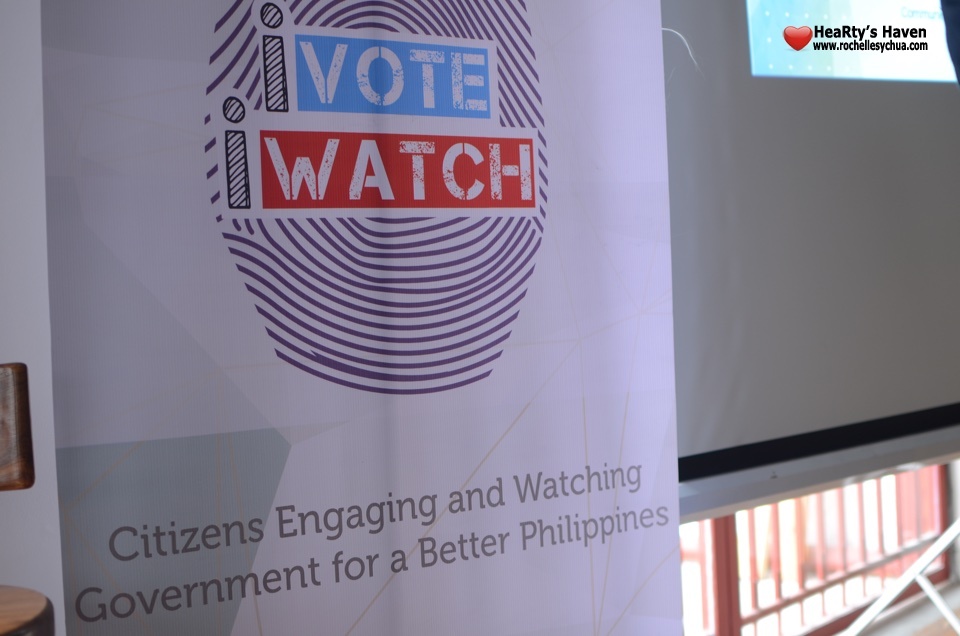
Last September 24, 2015 was the launch of iVote and iWatch. It was a gathering of citizens engaging and watching government for a Better Philippines.
Considering that Philippine election is fast coming, we, as citizens of the country, must be active in making sure that we vote the right candidates to key government positions. It is also important that we engage fellow Filipinos in discussions to keep the thoughts coming.
Netizens graced the event.
We listened to key speakers covering topics such as Tipanang Walis-Malinis, Philippine Online Chronicles, Citizen Engagement, Blogwatch & #JuanVote.
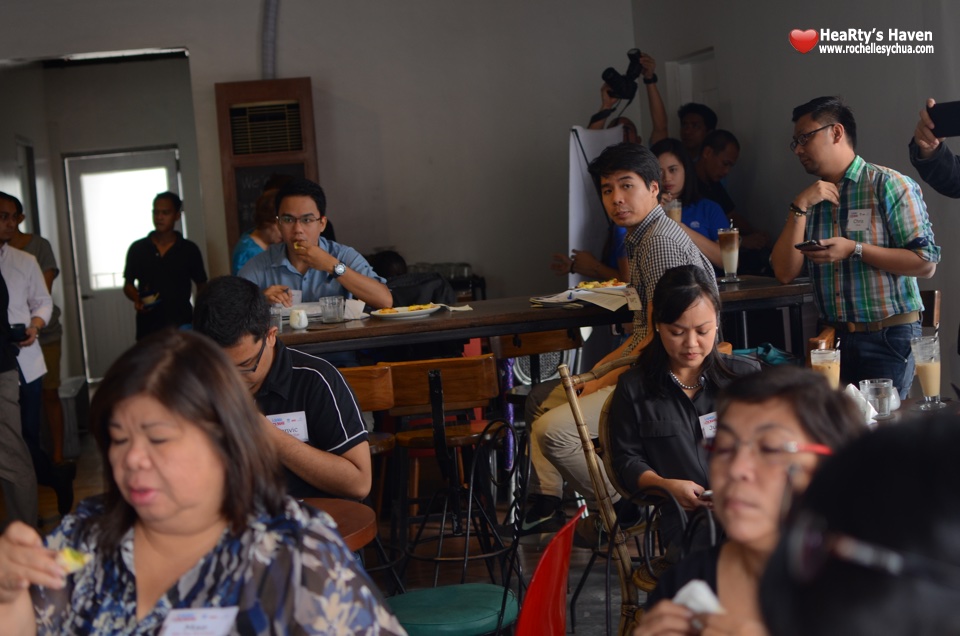
Walis-Malinis by Father Robert Reyes
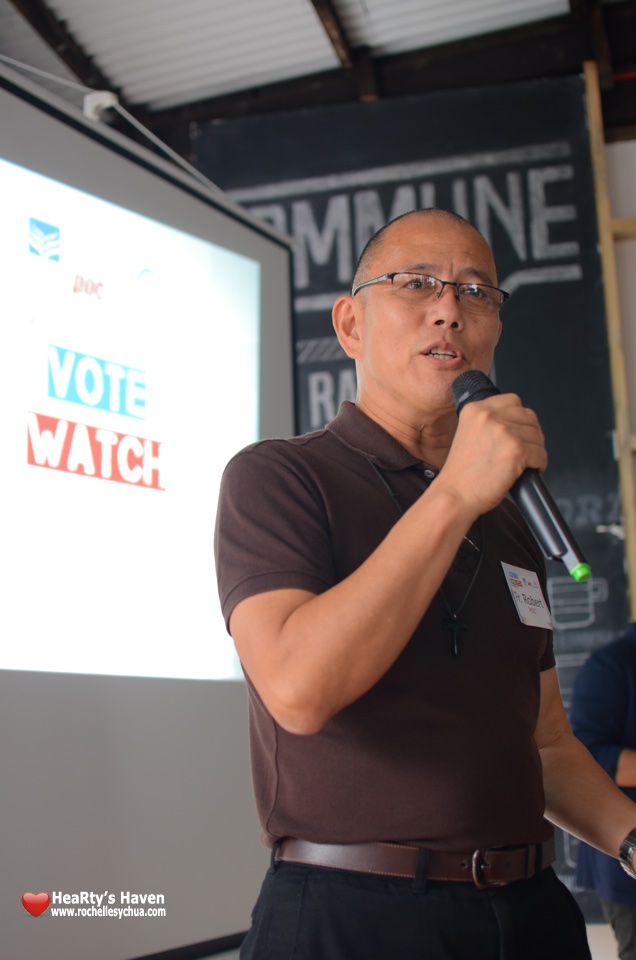
I like how Father Robert Reyes used the walis-tingting as a symbol to demonstrate his advocacy: Tipanang Walis-Malinis.
Walisin… Linisin, Walis Diyan Trapo!!!
Malinis, Pwede, Dapat, Napapanahon Na!
Malinis Ka Ba? Takbo Na!
We are so sick and tired of politicians who sacrifice the country’s interest to build their own family’s wealth. So sick and tired of poverty, environment degradation, flawed laws and corruption. We need to learn how to properly discern candidates who are running for government positions.
I’m sharing here the material given by Father Robert Reyes during the event. For your reference:
Tipanang Walis-Malinis
- Linisin ang kalooban, Konsensiya’y palakasin at patalasin.
- Linisin ang Pamilya, tangkilikin: tunnan na pagibig, katapatan at mabuting halimbawa.
- Linisin ang Pamayanan, mamamayan pakilusin, pamunuan tunay na paglingkurin.
- Linisin mga Paaralan, guro man o istudyante kamalayang malalim at malaya palaganapin!
- Linisin mga Simbahan, tunay na Diyos, tunay na Paglilingkod pa-iralin.
- Pulitikang pangsarili, pang-pamilya, pang-partido, pang-mayaman… sila sila noon Tayo Naman ngayon!
- Kulturang hilaw, maka-banyaga, salain! Tunay na Pinoy, tuna na maka-bayan patingkarin!
- Pamumuhay at Ugaling itim, sakim, laban sa kalikasa’y baguai’t Luntiang gawin.
- Daang Makitid Korporasyo’t Pamahalaan, Daang Marangal para sa lahat ng mamamayan.
- Meron noon, mababaw at manhid, mga balimbing patingin-tingin kikilos na dahil gising.
POC.net by Maui Hermitanio
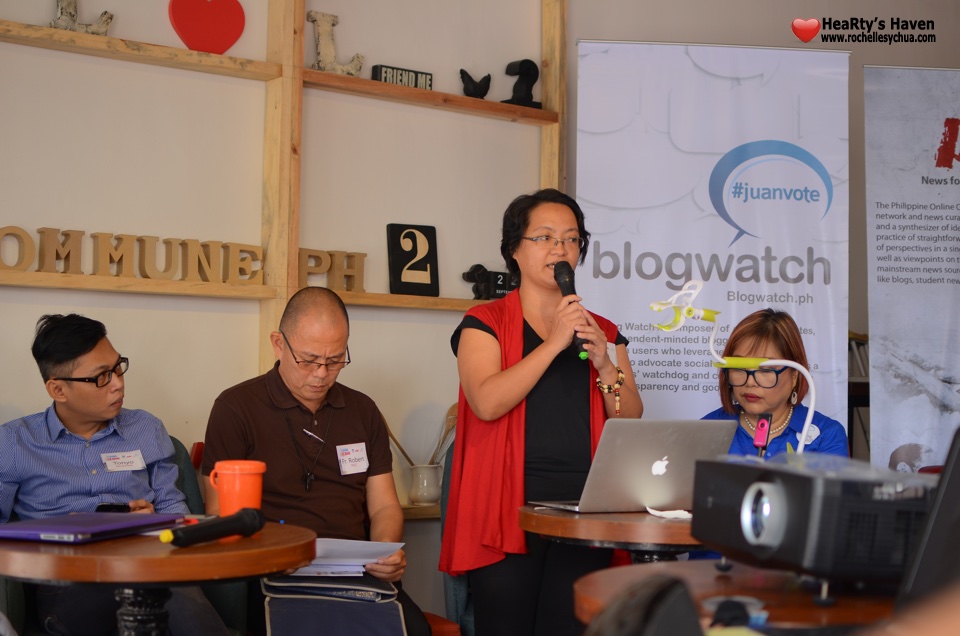
To put it simply, Philippine Online Chronicles (POC.net) is an online news portal with an advocacy.
The Philippine Online Chronicles (www.thepoc.net) is both a media network and news curator, a platform for alternative viewpoints and a synthesiser of ideas. POC presents a multiplicity of perspectives in a single article. It reports facts of the news as well as viewpoints on the news. POC does not confine itself to mainstream news sources but actively cultivates less heard voices like blogs, student newspapers, and alternative publications.
POC reports viewpoints on the news, along with facts of the news, by actively cultivating alternative sources of information. Content is internally linked to, and contextualised by, information from social media sites. Thus, readers are able to talk back to the news. Knowledge is shared and collaborated on in different levels, creating not just a knowledge space, but a cross-referential loop.
Important to note is that POC is solely funded by Vibal Publishing and is NOT affiliated with any political group.
Here are the different channels of POC where fresh content is shared:
- News – POC gathers the most salient news to keep readers updated with what is happening around the country and across the world. It presents different perspectives of the story from the wires, YouTube, Twitter, Facebook, and other social media sites.
- Beauty & Fashion – Staying beautiful and stylish should not be a daily dilemma. The Beauty & Fashion channel helps readers learn more about beauty and fashion trends, where to go for the best (and most affordable) finds, and other need-to-know information about getting one’s best look.
- Buhay Pinoy – What makes a true Filipino? This is what Buhay Pinoy channel focuses on. With articles regarding topics close to our hearts such as overseas Filipino workers, Philippine Tourism, political satire, and local dishes, some of which are written in Filipino, readers will find themselves smiling and feeling nostalgic. Containing a hodgepodge of topics, there is definitely a story here for every Juan.
- Lintech! – The Filipino’s love for anything tech is undeniable. Whether you consider yourself a techie or a newbie, you can keep up with the rapidly changing technology through the Lintech! channel. For how to’s and life hacks; gadget, games, and apps reviews; and technology-related commentaries, always stay posted on this channel.
- Metakritiko – Home to many human interest stories, Metakritiko is all about diverse forms of art and pop culture. Architecture, film, theater, visual arts, television – you name it; the channel got it. Check this out for a regular dose of reviews of films, books, hangouts and just about anything and everything under the sun.
- Pera-Isipan – Taking care of one’s money and career is so important nowadays that issues related to these often boggle the human mind. When you work so hard, you would not want it to go to waste. Then, you ask yourself so many questions especially when good opportunities arise. Is this a good investment? Is this career move going to hurt my finances? Is this a feasible savings plan? Pera-isipan addresses these issues to make handling money and career less stressful for you.
- Politi-Ko – The Philippine politics has never been lacklustre so much so that it frequently dominates the local headlines. Teaming up with Philippine Centre for Investigative Journalism (PCIJ), one of the most respected and distinct news organisation, POC’s Politi-ko channel showcases news, features, and opinion regarding local politics.
- Spiracular – Pinoy sports enthusiasts can remain up to date with the latest game stats and analysis through the Spiracular channel of POC. This channel also includes articles on athletes and sports trends. By tuning in to this channel, you do not only keep tabs of your favourite team, you also find inspiration to stay fit and to engage in sports.
- Sosyal! – Sosyal! is the perfect hub for the chika-loving people who just enjoy reading articles about the glitz and glamour of show business. From the latest dish on celebrities to the roundup of the newest television shows, this channel can satisfy your guilty pleasure for entertainment news.
- Wellness – As the popular saying goes, “health is wealth”. Read on the Wellness channel which contains commentaries, news, and features on a healthy lifestyle – no membership fee required and no commitment over the latest fitness fad involved.
- What on Earth – It is never too late to learn more about the world we live in. Global warming, wildlife conservation, disaster preparedness – What on Earth covers all environment-related issues to ignite interest, raise awareness, increase knowledge, and invite movement to take better care of Mother Earth.
- Pinoy LGBT – Recognising the lack of venue to address the issues that the lesbian, gay, bisexual, transsexual and queer community is facing, POC created the Pinoy LGBT channel. Aside from news and features, this section also contains erotic and love stories.
- POC Youth – The saying that the youth is the hope of our motherland still rings true as they join the discussion about issues that matter to them. POC youth features pieces written by the youth regarding social issues.
- Parody sa Web – Fr. Robert Reyes, the inimitable “Running Priest” writes Angelus reflections and shines a light at social causes and issues. Readers can leave a prayer request and learn more about his spiritual activism
- Last, but definitely not the least, Blogwatch. Will share more on this at the latter part of this blog post 🙂
The POC is home of Blogwatch since 2009. Being a member of Blogwatch, I thank POC for bringing Blogwatch to life!
Citizen Engagement: A Growing Global Phenomena by Tiago Peixoto
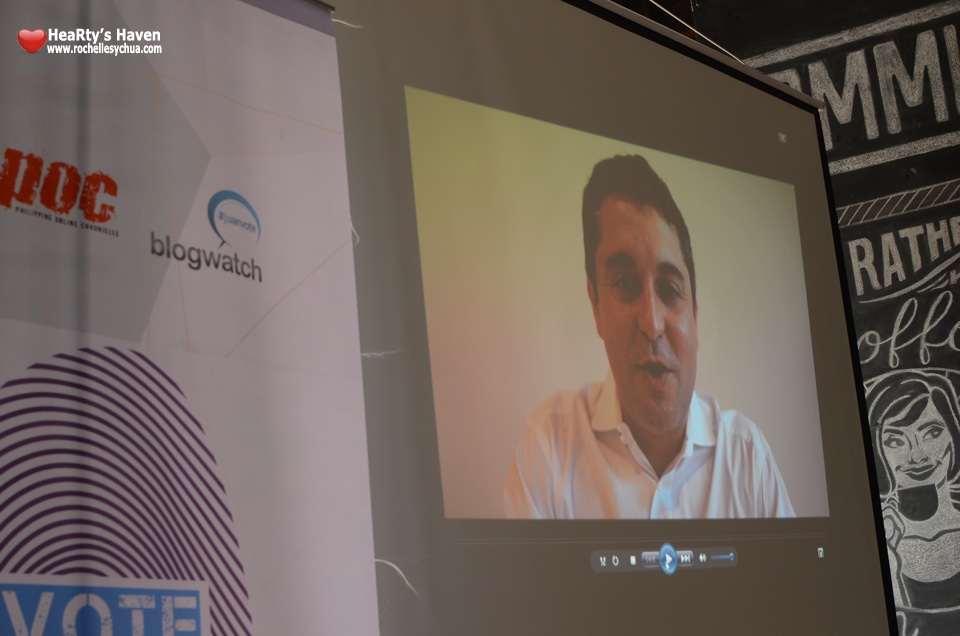
Blogwatch leads Noemi Dado and Jane Uymatiao was able to take the coursera course earlier this year about citizen engagement and found it insightful. Thus, they invited Tiago Peixoto from the World Bank Group to share some insights about Citizen Engagement, the Coursera course which covers the topic in detail, how Citizen Engagement can be leveraged most effectively to achieve better results for the country’s development, etc.
I want to learn more about citizen engagement considering that I intend to actively participate in 2016 Philippine election, sharing my personal views about the candidates, about their agenda, goals for the country, etc. I searched it online and found this link in Coursera. There is no date yet for future sessions but I will wait for it and make sure I take the course once it’s available.
Here’s the course syllabus of Engaging Citizens: a Game Change for Development? (information from Coursera Page):
Government works best when citizens are directly engaged in policymaking and public service delivery. What conditions are necessary for inclusive and effective citizen engagement? Can it positively improve people’s lives? This course provides an overview of citizen engagement, critically analyzing how it can be leveraged most effectively to achieve development results.
Overview
The overview will provide a course roadmap and explain the rationale behind this course—why this topic, and why now?
Week 1: Citizen Engagement: What It Is and Why It Matters
This week examines the theoretical underpinnings of citizen engagement and how it can lead to better development results. We begin by exploring the definitions and history of citizen engagement, as well as related concepts such as transparency, accountability, responsiveness and inclusiveness. We then look at the concept of the feedback loop, and the differences between intrinsic and instrumental approaches. Next we examine the crucial role of sociopolitical context and the enabling environment, and finally introduce the concept of strategic and tactical approaches to citizen engagement.
Week 2: Engaging Citizens for Improved Policymaking
This week explores the role that citizens can play in actively shaping public policy. We start by examining how citizens participate, analyzing the differences between ‘thick’ and ‘thin’ forms of engagement and asking strategic questions such as who should participate, how should participants interact with decision makers, what information do participants need, and how will participation impact policy decisions. Next, we survey examples of crowdsourcing and open innovation that are helping governments and citizens better interact. Finally, we unpack why citizens participate, moving beyond the mere calculation of costs and benefits described in the rational choice model to an analysis of broader factors that influence participation.
Week 3: Can Engaging Citizens Bring Better Services?
In this week we examine the role of citizen engagement in public service delivery. We first unpack different conceptions of the government-citizen relationship and then explore the ways citizens can serve as active agents of, rather than passive recipients in, the delivery of public services. We then provide an in-depth look at a range of citizen engagement projects in this area by exploring the methods, tools, barriers to inclusion and factors for success of case studies, particularly in developing country contexts.
Week 4: Innovations in Citizen Engagement
Having outlined the role of citizen engagement during policymaking and service delivery, the final week investigates recent innovations in citizen engagement. We begin by examining how recent advances in information and communications technology (ICT) can be used to enhance citizen engagement from a human development perspective, and review some of the most compelling new developments in this area. Next, we explore the reasons why some of these innovative approaches succeed while others fail, and look at how hybrid approaches-those that combine ICT tools with traditional methodologies-are being used in an attempt to maximize development results. Finally, we look at recent ICT-enabled citizen engagement case studies to assess their real-world impact.
We conclude the course with review videos, as well as ‘call to action’ videos from high-profile leaders in government, civil society and academia to provide you with tangible next steps to put your knowledge into practice.
Blogwatch: Why iVote, iWatch? by Noemi Dado & Jane Uymatiao
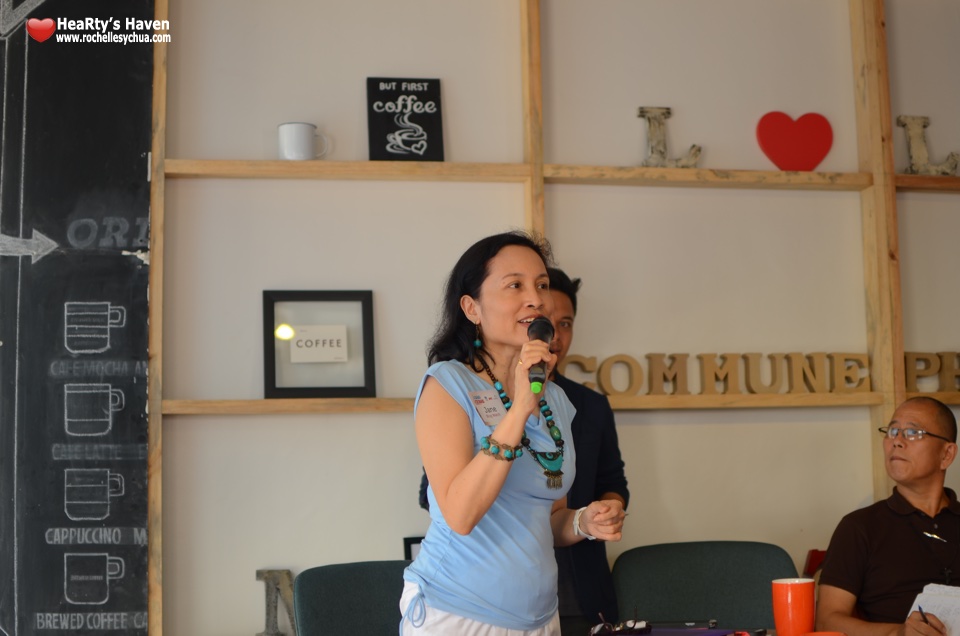
This part of the presentation is close to my heart since I write for Blogwatch. I’m not as active as other bloggers in this space as I only focus on writing in Blogwatch during election season. With 2016 elections coming in, I intend to write again. Blogwatch was launched November 24, 2009 with the goal to promote citizen engagement by netizens on cyberspace and offline with all stakeholders working for a better Philippines.
Blog Watch is composed of citizen advocates, independent-minded bloggers, and social media users who leverage new technology tools to advocate social change and serve as a citizens’ watchdog and collective conscience for transparency and good governance.
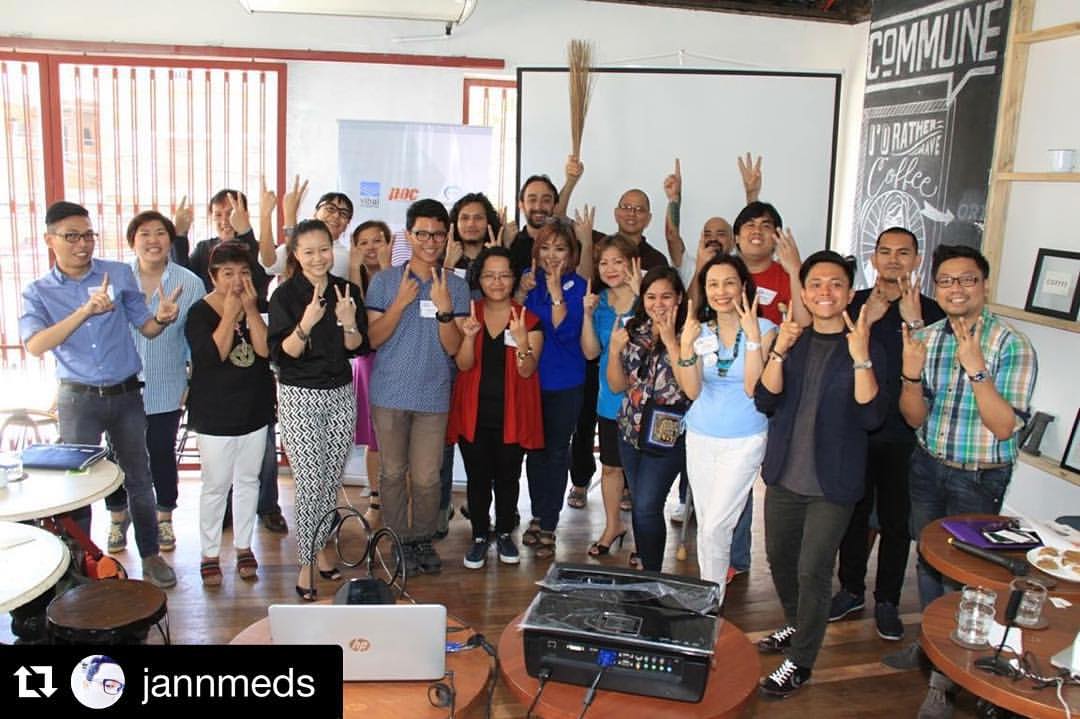
The event is basically the start of our coverage for the 2016 presidential elections. I really really hope that each and every one of us will participate actively whether by voting (reminder to register before end of October!), sharing views on social media, talking to fellow Filipinos on country issues, and writing articles in our blogs. Let’s iVote and iWatch together!
God bless our country.


Leave a Reply